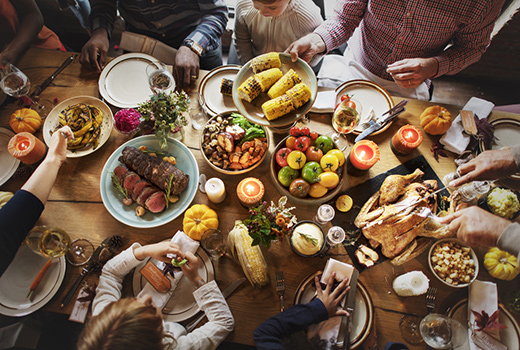They locked arms and bowed their heads. Different races joined together. An entire nation would talk about this moment of peace and unity.
It didn’t happen on a football field, but around a dinner table.
The first Thanksgiving occurred between Pilgrims and American Indians nearly 400 years ago. The Wampanoag people extended peace to the unknown English Puritans, who had anchored their ships and come into their territory. They were a dynamically different culture. The two races made a treaty to protect one another from outsiders. At the end of that first year, a feast was planned. Unified, they locked arms together in prayers of thanksgiving.
When was the last time someone of another race sat at your dinner table? Your home may be the most powerful location to fight the battle of racism. Over a meal, you learn about each other’s story. You listen to each other’s heartaches and triumphs. Foe becomes friend. Stranger becomes brother.
“Proximity breeds empathy. Distance breeds suspicion,” writes Brian Lorrits in “Right Color. Wrong Culture.”
Racism will never be exterminated until we stop having a monologue from a distance and begin to have a dialogue up close and personal.
The walls of racism in the early church crumbled inside a home. Jews didn’t associate with Gentiles and would never eat in their homes. One day, God shook Peter up, in a dream. He was summoned to the home of a Roman soldier, Cornelius. After getting to know him, Peter declared that Cornelius, because of his faith, was just as much God’s child as a Jew. Peter remained with Cornelius for a few days. I’m sure some of the neighbors were peeking through their blinds. Peter was probably the topic of conversation down at the synagogue. He was willing to put his reputation on the line for the sake of the advancement of the gospel.
If we hope to unify as a nation, we must first unify as a church. We must lock arms together regardless of race or socioeconomic status and lead the charge for racial reconciliation for the sake of the gospel. Some leaders of the church led the charge during the civil rights movement, but there was a large majority of the church that was silent. As tensions have escalated, our country is listening. What will they hear from the church?
Thanksgiving is coming. Who will be invited to your table?

